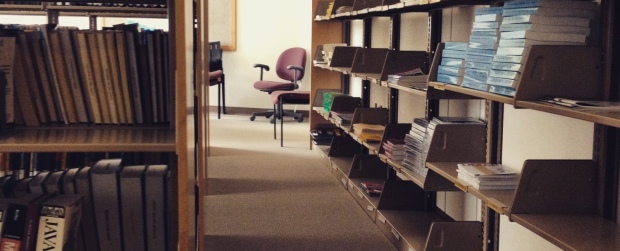Two days ago I stumbled upon this article called “Blogger Beware: You Can Get Sued For Using Photos You Don’t Own On Your Blog” by Roni Lauren. She had been blogging for three years when she got a DMCA (Digital Millenium Copyright Act) notice forcing her to take down 700 pictures and replace them. The photographer who owned the rights to a picture she pulled off Google contacted her with a takedown notice. She obviously felt guilty for using his work without consent and immediately took the pictures down. However, he wanted compensation for using his picture and that resulted in Roni seeking legal counsel as well as paying a hefty amount of money. The most important point I took away from her article, was that simply using a copyright protected image on your blog without permission makes you liable. It doesn’t matter if you’re unknowing, link back to the original page, give the original creator credit, take the picture down immediately after receiving a notice, or have one of those large disclaimers on your site stating that the pictures used are not your property. Bottom line, blogs can get sued for using copyrighted images. Just because everyone is pulling images they like off of Google doesn’t take away the fact that it can result in a copyright violation.
If you’re still wondering why this is such a big deal or you’re thoroughly convinced that this will never be you, let me give you some perspective. Let’s forget about legal action and fines for a second. My question is: do you know where these images are coming from? The answer is probably not. They could be the work of a graphic artist, a corporate flyer, an original painting, or museum property. The truth of the matter is someone worked hard to make that photo. I feel like an idiot for saying something so obvious, but it comes down to that. Just like we bloggers put effort into making posts, someone worked hard to create that picture so it is rightfully their property. Imagine your blogging success leads to the creation of an e-book that you publish. You wonder why no one is buying your book, and then you realize text segments from your blog have been littered all over the internet because other bloggers liked your words and started using them on their blogs. That would be quite a shame, wouldn’t it? Since we’re creators of content, I thought it would be a valid point to respect fellow creators of content. There are a lot of alternative measures that can allow you to continue to operate in the same manner with a few extra precautions.
If pulling pictures off the internet is your go to move for convenience and quality, you can find images online that are available to the public for commercial and non-commercial use. Media that exists within the public domain and Creative Commons is fair game for everyone. Public domain refers to works whose intellectual property rights have expired, have been forfeited, or do not apply. A good example of this is sheet music composed by Mozart. I frequently find such pieces online for free because they are within the public domain. On the other hand, Creative Commons refers to a type of licensing that content creators choose to use so that others can use their work for free. There are some restrictions though. Content creators can designate whether they want to allow their work to be used for commercial purposes and whether they will allow adaptations/alterations of their work under a Creative Commons license. I’m pretty sure sticking text on and/or graphically editing an image is considered to be altering the original work. The easiest solution I have found for now is using the search feature on Flickr. After entering a search term, Flickr allows you to filter the content by license with options such as “Creative Commons only, “Commercial use allowed”, and “Modifications allowed”. Therefore, you can find pictures for your creative purposes without committing any violations. Just remember to add additional criteria if you are using content on a commercial site or planning to alter the original work. Flickr is a good option because you can still find high quality images that match your specific idea without looking too hard.
But Adi you have a butt load of stock photos on your site! What are your plans for the future?
Good question reader, I’m glad you asked that. I’m going to present to you a second option to avoid copyright violations while posting media to your blog. You can simply take your own pictures. I created my Instagram account yesterday and I plan on taking a couple of pictures every day so I can build up a library of images to use for my blog posts. After I read Roni Lauren’s article, I went back to my blog and simply stared at all the images I have posted on my site. The problem with using stock photos is they’re not personable. I’m pulling these images off of the front page of Google Images, and a lot of other people are probably using those images too. I really started to consider the fact that I am using a ton of images and none of these are mine. Creative commons or not, these images somewhat relate to my messages for the most part, but they give creative insights into another person’s mind, not my own. I just felt a little icky about using the work of others so heavily on my blog; it really doesn’t matter to me if I’m allowed to or not (that’s just my personal decision, there’s nothing wrong with using Creative Commons images). Gaining perspective on media regulations motivated me to create my own media content for my blog.
I’ve only been using Instagram for a day so far, but it makes creating good quality images extremely easy. The featured image for this post is the shelves of the math/computer science library at my college. I arrived at my math seminar a little early today so I walked into the library to take a picture real quick. I thought it was very fitting for this topic since libraries and librarians are usually the ones who teach us about plagiarism. Transforming the original image into a finished product took less than a minute.

Original image

Finished product
Don’t get it twisted, I’m a really amateur photographer. Instagram just makes things really easy with filters, lighting adjustments, and cropping features. I like how easy the process of creating decent quality pictures is (takes 2 minutes) and it inspires me to draw greater inspiration from my environment. I’m a firm believer that one doesn’t have to wait for grand inspirational moments; inspiration is all around us and I like documenting the daily occurrences that inspire me to write about certain topics. This way my followers get additional insights into my perspective on life and my writing inspirations, while at the same time I am creating personal content that speaks to my persona. I plan on using my pictures for most of my featured images, but sometimes I may not have a fitting image, so Creative Commons can be used for that. Regardless, this definitely will add more of a personal touch to my posts.
Most importantly, I’m just glad I stumbled upon the right information when I did and in addition to that I inspired myself to take my blogging adventures to another level. I strongly encourage you to think about where your images are coming from as well. WordPress folks are pretty awesome in that they have some resources and support for blogs who have been hit by DMCA notices. Even though many blogs are getting away with using copyrighted material, just like the rest of the internet, it’s probably better to take preemptive action anyways. Getting sued for a copyright violation is pretty serious and I wanted to share the information I learned with you so we can both avoid future troubles.
I imagine some of you are bosses and already adhere to copyright regulations. Kudos to you!

Basically what you’re saying is those people who post pictures on Instagram and stating their “love” for photography are just posers who just take advantage of the editing tools to seem better than they actually are. I kid. I don’t even use Instagram but I’ll probably have to create one in university because there’s a photojournalism module. Your photo looks good and your idea of using personal photos are equally as good. That way, you won’t run the risk of people coming up to you and accusing you of plagiarism. Looking forward to see some of your pictures here!
LikeLiked by 1 person
Ha my dad is an actual photographer and that takes a lot more skill for sure 😛 It is useful for making picture creation accessible to the general public and that’s what I plan to use it for.
LikeLiked by 1 person
Oh that’s cool! My mum’s a decent amateur photographer (she does it in her spare time) and is pretty good at Photoshop so she’ll be teaching me some basic techniques where I can use it in Japan to take some really swell photos 🙂
LikeLiked by 1 person
Reblogged this on rennydiokno.com.
LikeLike
[…] Avoiding Plagiarism And DMCA Notices […]
LikeLike